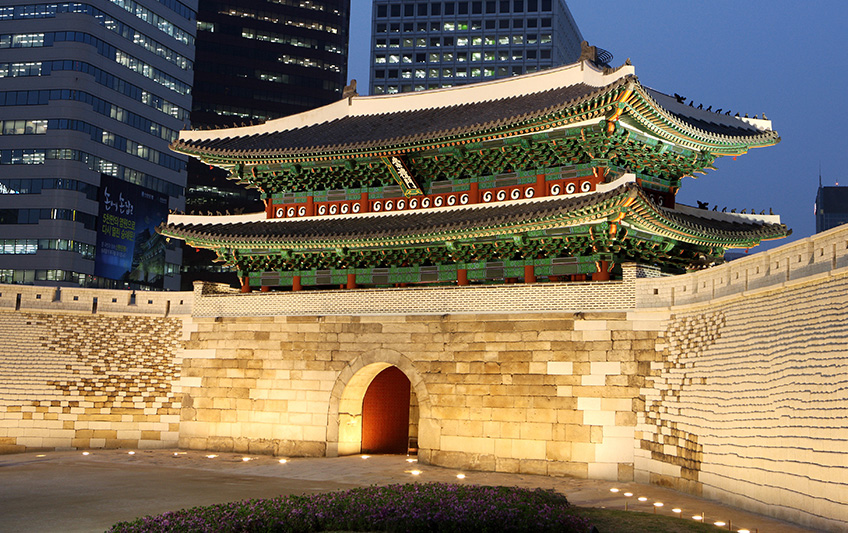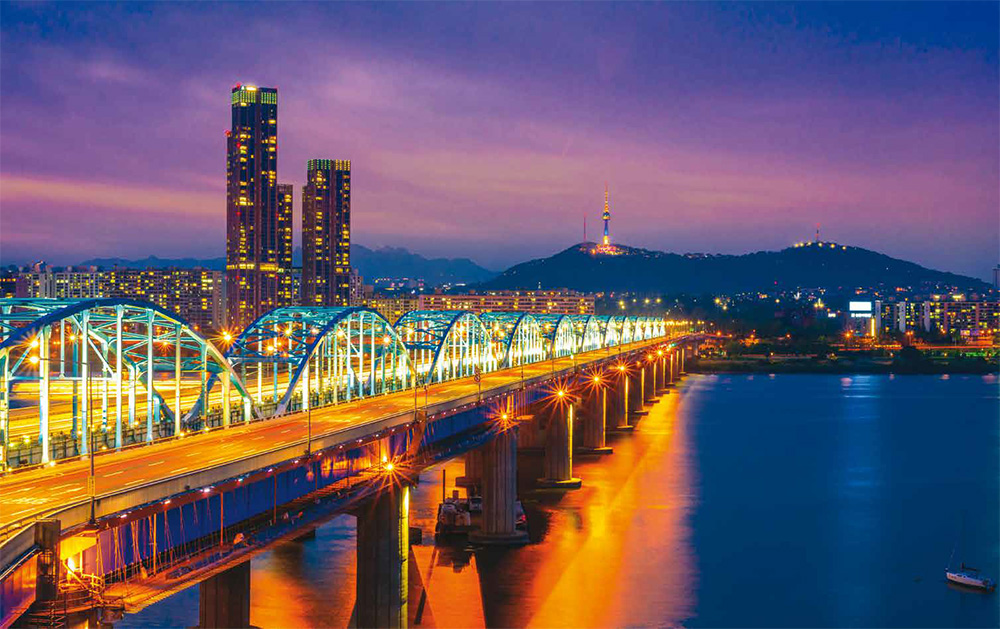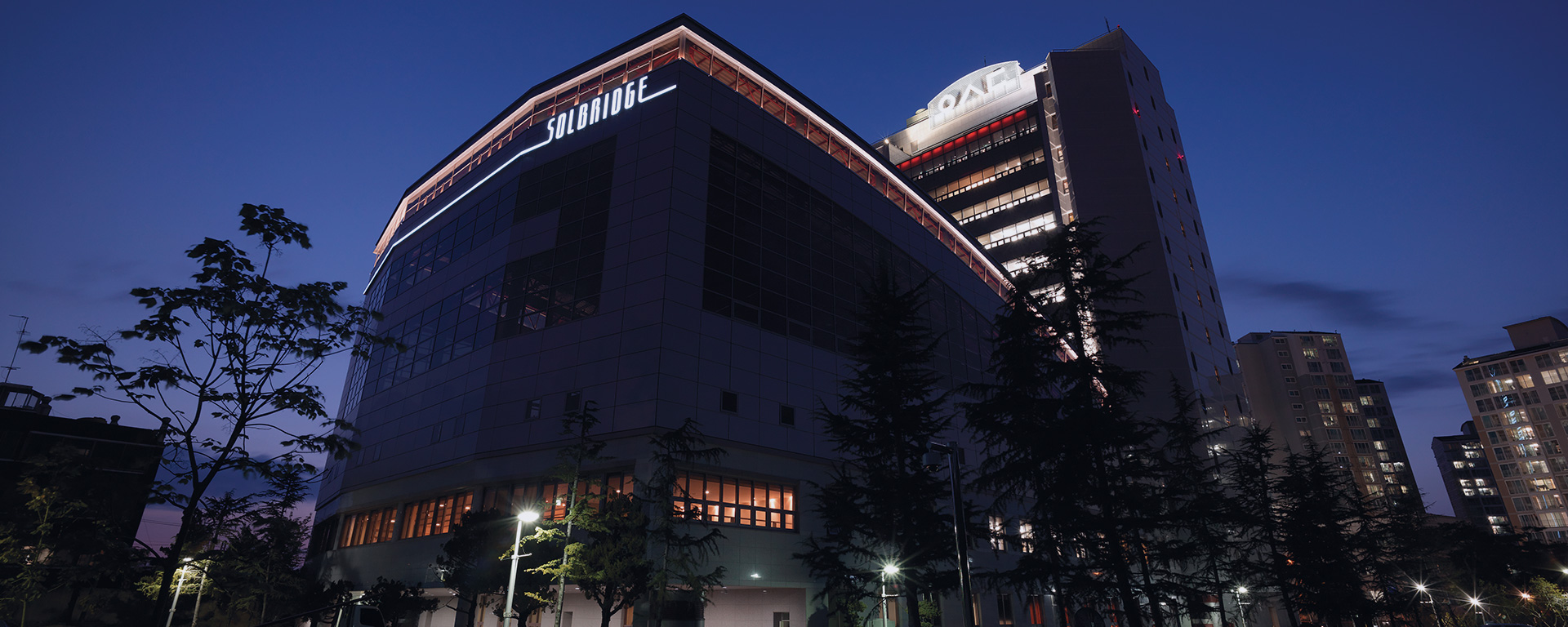Republic of Korea
Korea’s rate of economic growth has no parallel in the world over the last fifty years. From 1994 to 2005 Korea ranked second internationally in terms of the growth of productivity according to the OECD, and that growth was focused in the critical fields of IT, software, Internet technologies and nano-technology. Korea is now a dominant player in semiconductors, memory chips, automobile parts, shipbuilding, logistics, signal technology, mobile communications such as DMB (Digital Multimedia Broadcasting), entertainment, animation, shipping, steel refinement, construction, petrochemicals and satellite communications. Korea has also made one of the greatest commitments of any advanced country to developing next generation technologies such as nano-fabrication, biotechnology, satellites and space technologies.


Moreover, Korea has emerged as the major player in cultural production for Asia and the world over the last ten years. Korean films have won major awards and recognition for innovation, Korean fashion sets the trends in Asia and the world, Korean dramas are the rage among young and old in Japan, China, the Middle East and increasingly Latin America and other regions. The “Korean Wave” extends to sports, where Koreans in golf, tennis, baseball and other fields have proven themselves. Korean music and cosmetics are the rage in China and Southeast Asia. Korea’ hosting of the 1988 Olympic Games and co-hosting of the 2002 FIFA World Cup were but the first step towards Korea’s new global role.
Korea is well on its way to being a dominant force in Northeast Asia, a region with a population of 1.5 billion and a combined GDP of 8 trillion US dollars (25 percent of the world’s total). This financial and manufacturing hub is universally recognized as the gateway to the markets of China and Japan. All of the major Northeast Asian capitals: Beijing, Osaka, Shanghai and Hong Kong, are located within a three-hour flight of Seoul, making it an excellent location which many firms have selected for their head offices. Moreover, nations like Vietnam and Mongolia, who are poised to become the next generation of tigers, have taken Korea as a development model and Korean business has deep roots in their economies.
Korea’s advanced labor force is one of the best educated in the world with over 97% possessing a college education or vocational training. Senior management in Korean firms rank at the top in the world in terms of international experience and have built the most powerful global networks anywhere. Korean consumers already have a reputation for serving as “early adopters” ready to try new technologies and as a result the Korean market has become a critical proving ground for technology, media and consumer goods: a place where future global trends can be spotted early.
Korea has one of the world’s highest broadband Internet subscription and mobile phone penetration rates. When this fact is combined with its status as a premier producer of cultural content, the power of Korea is clear. The eleventh largest economy and twelfth largest trade volume is just the tip of the iceberg.
One need only sit down in a comfortable seat on one of Korea’s legendary KTX express trains to enjoy the luxury of modern Korean life. The AETRA passenger survey rated Korea’s Incheon International Airport as the best in the world, especially for its technical innovation. Korea has made significant strides towards becoming a world leader in the service, tourism and financial areas as well. This new prominence, coupled with the appointment of Korea’s former foreign minister Ban Ki-moon as Secretary General of the United Nations, proves beyond a doubt that Korea has truly come of age.
About Korean Culture
- Digital Hangeul Museum (http://www.hangeulmuseum.org)
- Traditional Culture Contents Museum (http://www.tcc-museum.go.kr)
- Korea Tourism Organization (http://english.visitkorea.or.kr)
 KOREAN
KOREAN MySolBridge
MySolBridge VMock
VMock

Get social with SolBridge
Contact Us
Get in touch with our team